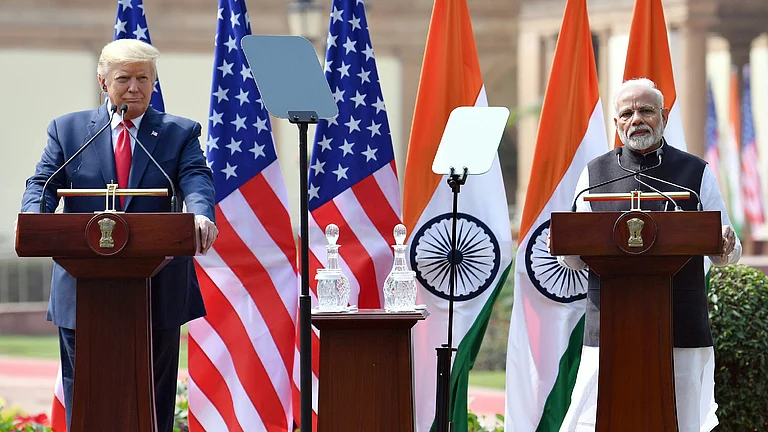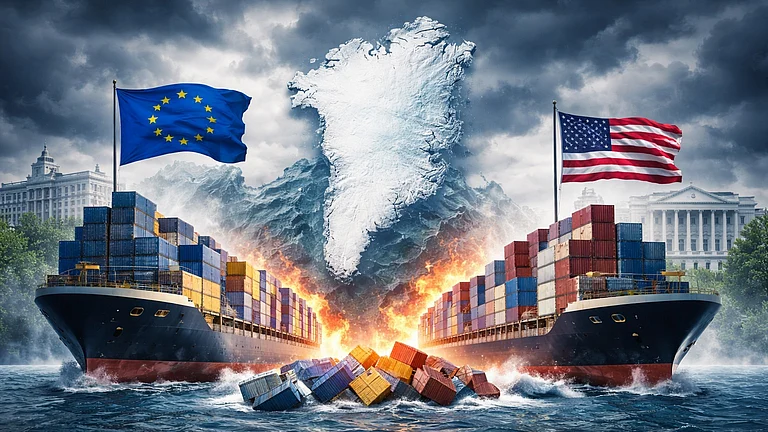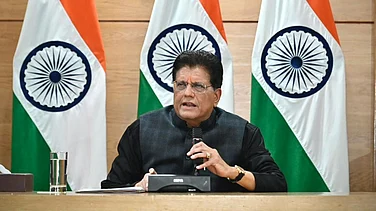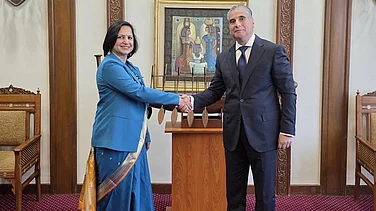Former US president and Republican presidential candidate Donald Trump has called India the “biggest charger of tariff” on foreign goods. While delivering a speech at the Detroit Economic Club in Michigan on Thursday, Trump said India’s tariff is more than that of China and Brazil. Trump added that if he comes to power in the upcoming US presidential elections, his economic policy for international trade will be based on the principle of reciprocity.
“Perhaps the most important element of my plan to make America extraordinarily wealthy again is reciprocity. It’s a word that’s very important in my plan because we generally don’t charge tariffs,” said Trump in Detroit. He added that China will charge us a 200 per cent tariff and Brazil is a big charger.
This isn’t the first time that Donald Trump has mentioned India during his election campaigns. Earlier, at a campaign in Michigan on September 17, Trump called India a “very big abuser” of trade agreements.
What opportunities and challenges are instore for India if Trump gets re-elected?
Despite Trump’s emphasis on “principle of reciprocity”, it is unlikely to have any big impact on the trade relations between the two countries, according to global market research by Nomura. In fact, the report predicts that Trump’s win is likely to prove beneficial for India.
“We see India as a relative beneficiary, due to its domestic demand-driven growth model and benefits from lower commodity prices, supply chain shifts and on foreign policy,” said the report.
India’s merchandise trade surplus, which stood nearly $32 billion in 2023, and high tariffs on certain goods might come under scrutiny and invite punitive measures if Trump comes to power. However, the disagreements will not be sustainable in the medium-term.
Nomura study mentioned that any differences in trade between the two countries under the Trump Presidency will be set aside as India is positioning itself as a strong alternative to China in the global supply chain. Additionally, the US’s trade restrictions on China are likely to make things favourable for India.
Although one key area that might suffer is immigration, where Trump is likely to tighten the policies. Trump has been against illegal immigration and during his previous presidential term, he enacted quite a few policies to curb immigration. His stance on legal immigration is something that is still unclear and has made companies hiring foreigners anxious. Additionally, Indian firms in America have increased domestic hiring and reduced dependence on H-1B visas that facilitates the hiring of foreign nationals.
According to data by the national foundation for American policy (NFAP), Tata Consultancy Services, which witnessed the highest hirings in the financial year 2014-15 under the H-1B visa, has come down by 75 per cent in just eight years' time. During the same period, the hiring by Infosys decreased by 21 per cent and by around 46 per cent by HCL America.
A recent ruling by the US Supreme Court found the multinational IT firm Cognizant Technology Solutions guilty of discriminating against non-Indian workers. The ruling blamed the IT firm for exploiting the loopholes present in H-1B visas and used it to favour South Asians in employment decisions.
During Trump’s tenure as president, denial rates of visas were significantly high. With the recent SC ruling, the visa policy will likely become more stringent.
































